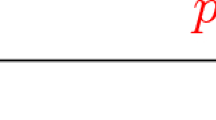Abstract
Is it coherent to suppose that in order to hold a belief responsibly, one must recognize something else as a reason for it? This paper addresses this question by focusing on so-called “Inferential Internalist” principles, that is principles of the following form: in order for one to have positive epistemic status Ø in virtue of believing P on the basis of R, one must believe that R evidentially supports P, and one must have positive epistemic status Ø in relation to that latter belief as well. While such principles and their close relatives figure centrally in a wide variety of recent epistemological discussions, there is confusion in the literature about what, precisely, Inferential Internalism commits one to and whether it is so much as coherent. This paper (1) articulates a broader framework for understanding the notion of epistemic responsibility, (2) motivates Inferential Internalism on the basis of considerations about the basing relation, epistemic responsibility, and parallels with practical deliberation, (3) defends Inferential Internalism against charges of incoherence leveled by James Van Cleve and Paul Boghossian, and (4) shows that contrary to a currently widespread view, Inferential Internalism is coherent even if foundationalism and the a priori are rejected. The paper closes with a preliminary argument for an affirmative answer to the initiating question about the requirements of epistemic responsibility.
Similar content being viewed by others
References
Alston W. (1989). Epistemic justification: Essays in the theory of knowledge. Cornell University Press, Ithaca, NY
Audi R. (1993). Belief, reason, and inference In The structure of justification. Cambridge University Press, New York, pp. 233–273
Boghossian P. (2001). How are objective epistemic reasons possible? Philosophical Studies, 106:1–40
Boghossian P. (2003). Blind reasoning. Proceedings of the Aristotelian Society, supplementary volume LXXVII:225–248
BonJour L. (1998). In defense of pure reason. Cambridge University Press, New York
Brandom R. (1994). Making it explicit: Reasoning, representing, and discursive commitment. Hardvard University Press, Cambridge, MA
Carroll L. (1895). What the tortoise said to Achilles. Mind, 4:278–280
Fumerton R. (2004). Epistemic probability. Philosophical Issues 14, Epistemology, 149–164.
Fumerton R. (1995). Metaepistemology and skepticism. Rowman & Littlefield, Totowa, NJ
Ginet C. (1985). Contra reliabilism. Monist, 68:175–187
Huemer M. (2002). Fumerton’s principle of inferential justification. Journal of Philosophical Research, 27:329–340
Leite A. (2005). A localist solution to the regress of epistemic justification. Australasian Journal of Philosophy 83:395–421
Leite, A. (2004). On justifying and being justified. Philosophical Issues 14, Epistemology, 219–253.
Klein P. (1999). Human knowledge and the infinite regress of reasons. Philosophical Perspectives 13:295–325
McDowell J. (1998a). Knowledge and the internal In Meaning, knowledge, and reality. Harvard University Press, Cambridge, MA, pp. 395–413
McDowell J. (1998b). Knowledge by Hearsay. In Meaning, knowledge, and reality. Harvard University Press, Cambridge MA, pp. 414–413
Pryor J. (2000). The skeptic and the dogmatist. Nous 34:517–549
Stroud B. (2000). Belief, reason and inference. In Meaning, understanding, and practice. Oxford University Press, New York, pp. 33–51
Stroud B. (1977). Hume. Routledge, New York
Thomson J.J. (1965). Reasons and reasoning. In Max Black (ed) Philosophy in America. Cornell University Press, Ithaca, NY, pp. 282–303
Van Cleve J. (1984). Reliability, justification, and the problem of induction. Midwest Studies in Philosophy IX:555–567
Williams M. (1999). Scepticism. In: Greco J., Sosa E. (eds) The Blackwell guide to epistemology. Blackwell Publishers, Malden, MA
Wittgenstein L. (1953). Philosophical investigations. Blackwell Publishers, Oxford
Wright C. (2001). On basic logical knowledge. Philosophical studies 106:41–85
Author information
Authors and Affiliations
Corresponding author
Rights and permissions
About this article
Cite this article
Leite, A. Believing one’s reasons are good. Synthese 161, 419–441 (2008). https://doi.org/10.1007/s11229-006-9093-1
Published:
Issue Date:
DOI: https://doi.org/10.1007/s11229-006-9093-1




